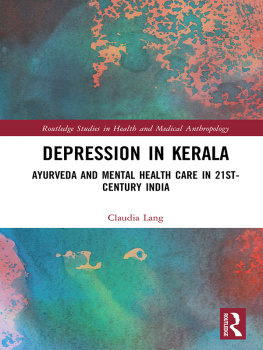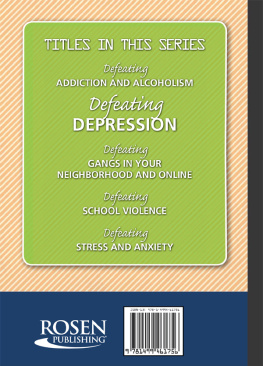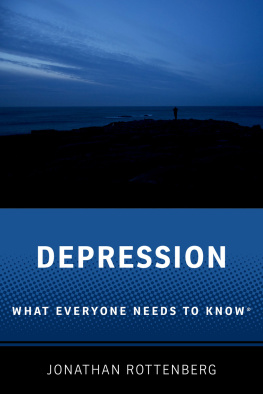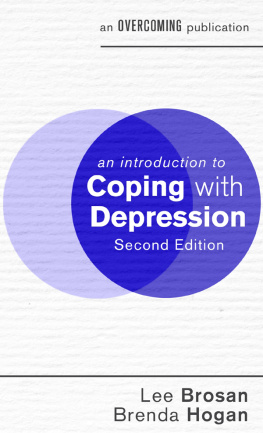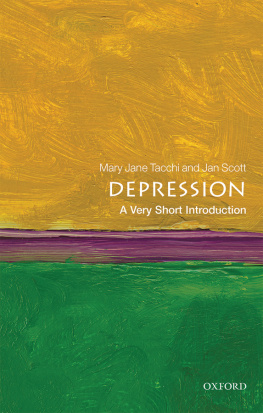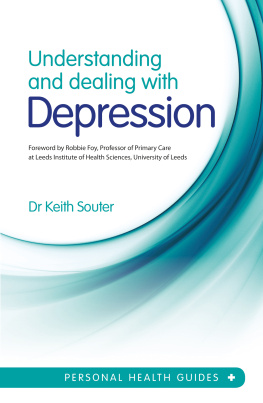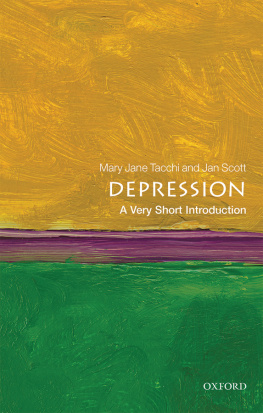Depression in Kerala
This book examines depression as a widely diagnosed and treated common mental disorder in India and offers a significant ethnographic study of the application of a traditional Indian medical system (Ayurveda) to the very modern problem of depression. Based on over a year of fieldwork, it investigates the Ayurvedic response to the burden of depression in the Indian state of Kerala as one of the key processes of the local appropriation or glocalization of depression. More broadly, Lang considers: What happens with the category of depression when it leaves the West and travels to South Asia? How is depression appropriated in a South Asian society characterized by medical pluralism? She explores on the level of ideas, institutions and materialities how depression interacts with and changes local worlds, clinical practice and knowledge and subjectivities. As depression travels from the West to South India, its ontology, Lang argues, multiplies and thus leads to what she calls depression multiple.
Claudia Lang is an ERC-funded postdoctoral research fellow working on the GLOBHEALTH project at Cermes3 (Center for research in medicine, science, health, mental health and society) in Paris, France.
Routledge Studies in Health and Medical Anthropology
Depression in Kerala
Ayurveda and Mental Health Care in 21st-Century India
Claudia Lang
Diagnosis Narratives and the Healing Ritual in Western Medicine
James P. Meza
For a full list of titles in this series, please visit http://www.routledge.com/Routledge-Studies-in-Health-and-Medical-Anthropology/book-series/RSHMA
First published 2018
by Routledge
2 Park Square, Milton Park, Abingdon, Oxon OX14 4RN
and by Routledge
711 Third Avenue, New York, NY 10017
Routledge is an imprint of the Taylor & Francis Group, an informa business
2018 Claudia Lang
The right of Claudia Lang to be identified as author of this work has been asserted by her in accordance with sections 77 and 78 of the Copyright, Designs and Patents Act 1988.
All rights reserved. No part of this book may be reprinted or reproduced or utilised in any form or by any electronic, mechanical, or other means, now known or hereafter invented, including photocopying and recording, or in any information storage or retrieval system, without permission in writing from the publishers.
Trademark notice: Product or corporate names may be trademarks or registered trademarks, and are used only for identification and explanation without intent to infringe.
British Library Cataloguing-in-Publication Data
A catalogue record for this book is available from the British Library
Library of Congress Cataloging-in-Publication Data
A catalog record has been requested for this book
ISBN: 978-1-138-48280-7 (hbk)
ISBN: 978-1-351-00136-6 (ebk)
Many people have contributed to this book in ways that are more profound and deep than I can express. I first acknowledge my deepest gratitude to the mentors of this project: Frank Heidemann who has been a teacher and friend for many years for helping me sharpen my anthropological perspective and for his unfailing support. William (Bo) Sax for opening up much of the network of mental health scholarship to me and for teaching me a great deal about healing in South Asia, ontologies, and the art of ethnography. He and the workshops he organized in Heidelberg and elsewhere were a constant source of inspiration. Mitchell Weiss for sharpening my thinking on cultural factors and the cultural epidemiology of depression resulting from his long interest in mental health and psychiatry in India and for sharing his knowledge on mental health and psychiatry in Indian films. I appreciate their extensive comments and suggestions for preparing this book.
I also own gratitude to Helene Basu her vision of cultural and transcultural psychiatry and her work and thinking about psychiatry and ritual healing in India have strongly shaped my own understanding and emphasized the important contribution of anthropology in this field. Murphy Halliburton has been of invaluable help since the start of this project: he introduced me to the field of Ayurvedic psychiatry and into mental health care in Kerala and was a major support and good friend throughout this research.
I extend my warmest gratitude to the doctors and students at the Government Ayurveda Mental Hospital, the P.S. Varier Ayurveda College, Kottakkal, the Ayurveda College Thrippunithura, and the doctors, psychologists, social workers and the students at the three hospitals in Ernakulam and the private clinics whose names I have anonymized in the manuscript. I further thank all those who were either in state of deep despondency or recovered from it as well as those who cared for them for sharing their experiences of suffering with me. My special thanks goes further to my Malayali friends Babu Appat, Bino, Father Binoj, Burton Cleetus, Father John Maria Das, K. Gireesh, Sanat B. John, Anoop Kumar, Dilip Kumar, Father Xavier Manickathan, Rajan Mathai, Sister Miriam, Neela Nair, Rahul Nair, Father Bosco Njaliath, Indu P., Litto Palathingal, M.P Eshwara Sharma, K. Sundaran, Roy Southil, Sister Tessy and Muhammad Mashoor Thangal for their friendship, help, and hospitality and for many inspiring conversations. I am especially indebted to my friends Babu and Ancy and to Tom Paul who taught me a great deal about health, culture and suffering in Kerala and in whose homes I spent many months and was always made welcome. Thanks also to my friend and colleague Eva Jansen with whom I shared the challenges and spirit of the beginning of this project and to Anni Feiler, Janina Geist, Ursula Lang and Maria Wander for helping to take care of my children in India.
I particularly appreciate the support of Hilde Link and Matthias Laubscher during the early phase of this research. My research benefited from the work of other scholars whose challenging intellectual exchange was a source of inspiration, including Ananda Chopra, Hansjrg Dilger, Stefan Ecks, Jean-Paul Gaudillre, Byron Good, Sumeet Jain, Anne Lovell, David Mosse, Harish Naraindas, Heike Oberlin, Johannes Quack, Laurent Pordi, Ursula Read, Brigitte Sbastia, Roman Sieler and Annika Strauss. Thanks also to the participants of: the Oberseminar at the Institute of Social and Cultural Anthropology, Munich; the Medical Anthropology Forum, South Asian Institute, Heidelberg; the Seminar Series Medical Anthropology, Institute of Social and Cultural Anthropology, Berlin; and the Arogyam Network meetings in Heidelberg and Istanbul for comments on earlier iterations and sections of this manuscript. Moreover, the keen interest and often critical remarks of my students in Mnchen and Mnster have contributed to refining my thinking on mental health in India. Many thanks to Emma Battell Lowman for her invaluable help in editing and commenting on the manuscript.
The research and writing up of this project were made possible by grants from the German Research Foundation (HE 2034/181 and LA 3225/11) and by grants from the Hochschul- und Wissenschaftsprogramm (HWP) and the Bavarian Gender Equality Grant (BGF) of the Ludwig-Maximilians-University, Munich.
Finally, thanks to my parents Hans and Ursula Lang for their constant support and to my brother Stefan Lang for creating the maps that appear in this manuscript. I am particularly grateful for my children Anand, Georgie, Jonathan and Gita Feiler for bringing the most precious joy and meaning to my life. Their readiness to accompany me on fieldwork, immerse themselves in school life in Kerala, and critically discuss cultural differences expanded my own horizons exponentially. Much more than I can say I owe to the friendship and love of my closest friend Andreas.

